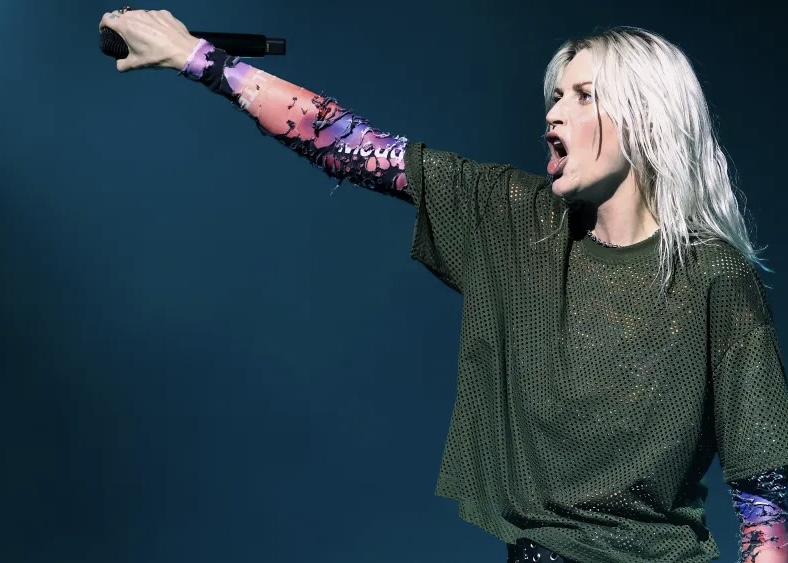What Is Toro y Moi’s “Daria” Really About?
Toro y Moi, the genre-blurring project of Chaz Bear, is known for his introspective yet abstract lyricism. The cryptic lyrics of his latest track, “Daria,” produced in collaboration with Kenny Beats, have sparked discussion about its deeper meaning. With puzzling phrases, moody repetitions, and layered bass lines, Toro y Moi’s “Daria” explores themes of desire, emotional conflict, and modern relationships. While the song initially seems to be about longing, a closer look reveals a deeper exploration of unreciprocated love and the complexities of situationships.
Verse 1: Contrasting Desires
The song opens with a sense of deflated desire. The narrator longs for a genuine connection, but "she"— presumably Daria — chooses detachment instead:
"She wanna go out
But not to a bar
Asked to party
Call a bigger car"
Immediately, these contrasting desires are laid bare. Daria wants to go out, but not to a typical bar scene — she's seeking something bigger, more expansive, like a party with more people and distractions. The mention of "calling a bigger car" suggests she wants to include others, distancing herself from a more intimate experience with the narrator.
"I mean I'm down with just you and me
I mean I'm down with whatever you call me"
In contrast, the narrator is open to a more intimate connection. “I’m down with just you and me” expresses a desire for one-on-one time, something genuine. The willingness to "go along with whatever you call me" highlights the unequal power dynamics in the relationship, suggesting the narrator will compromise their desires just to remain close to Daria. It underscores a longing to be with her, whatever form the connection might take.
Pre-Chorus: Self-Doubt and Emotional Turmoil
"Through my lens, I'm such a fucking sin
My body's locked in, I wanna be the gift
Something to be real
It's kinda like a spin"
The emotional deflation of verse one carries over into the pre-chorus, where the narrator’s self-image begins to unravel. The narrator describes themselves as “a fucking sin,” implying a sense of unworthiness or a corrupting aspect of themselves. This continues with “my body’s locked in,” suggesting the narrator is too emotionally invested to turn back. The self-doubt comes back with “I wanna be the gift,” implying they want to give themselves over to Daria but don’t see themselves as worthy. This culminates in the “spin” of the final line, where the narrator struggles with self-doubt while trying to feel “worthy.”
Chorus: The Remedy
"She's got the remedy, she gets everything
Her pill could kill the pain
Her pill could kill the pain"
After introducing their emotional pain, the narrator makes it clear that the solution to their turmoil is the elusive Daria. The repetition of "her pill could kill the pain" suggests the narrator views Daria as the only way to alleviate their suffering. The repetition of this line conveys a sense of dependency, suggesting the narrator seeks solace from Daria, even though the relief may be temporary.
Verse 2: Inevitability of Pain
"I'd rather be a casualty of love
Happy mistakes that’s not too rushed
It's abysmal to the touch
Absolutely is a must"
The second verse marks a shift as the narrator wholeheartedly succumbs to their emotions and the risks of love. The phrase “casualty of love” suggests that the narrator is willing to suffer for love. The line “happy mistakes that’s not too rushed” reflects the human tendency to rush into love impulsively, yet here the narrator has fully considered the risks and still chooses to dive in.
The following lines, “abysmal to the touch / absolutely a must,” highlight the contrast between desire and pain. The narrator knows they’ll experience pain as a consequence of these desires, but they decide it’s “absolutely a must,” regardless.
Bridge: Inadequacy and Compromise
"Wanna be the red inside the rust
Wanna be the blue that's not enough
Every single thing that I may love
Every single kiss with bleeding gums"
The bridge introduces more abstract language. “Wanna be the red inside the rust” suggests the narrator wants to infuse vitality (symbolized by red) into something decaying (rust), such as a stagnant relationship. Likewise, since blue often symbolizes sadness, “wanna be the blue that’s not enough” may suggest the narrator wants to minimize sorrow—ensuring it’s "not enough" to jeopardize the relationship.
The latter lines express the pain of these emotional sacrifices. “Every single thing that I may love/Every single kiss with bleeding gums” suggests that the relationship is consuming the narrator, giving fleeting joy but leaving them with lasting pain.
Chorus Reprise: The Cycle of Yearning
With the final chorus reprise, the narrator reaffirms their desires.
"She's got the remedy, she gets everything
Her pill could kill the pain"
This repetition of the chorus emphasizes the cyclical nature of the narrator’s emotional struggle. The brief relief of Daria contrasts the narrator’s near-constant pain and sacrifice, leaving the narrator trapped in a cycle of yearning, one-sided compromise, and reliance on a fleeting “remedy.”
Emotional Conflict and the Uncertainty of Love
“Daria” lays bare the emotional turmoil of one-sided compromise and affection in relationships. The narrator is clearly torn between a desire for connection and a painful reality that their feelings are not fully reciprocated. The song explores the paradox of love — if it works out, it promises unmatched joy, but if it doesn’t, it can cause deep suffering. Ultimately, the narrator is suspended in emotional limbo, desiring love and understanding, yet the “remedy” for their pain remains frustratingly elusive.
.png)









